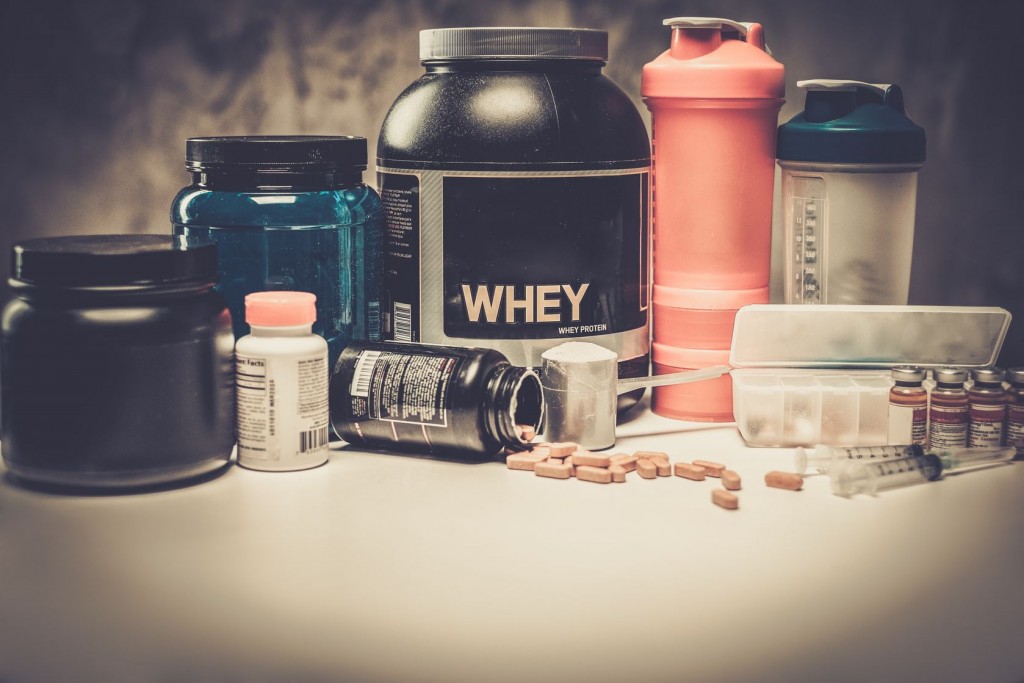Despite all the knowledge we have about what works well in the fitness industry today, there’s still plenty of learning to be done. For starters, the supplement industry is out of control.
The strange thing is that, although plenty of athletes use supplements, few have actually researched supplements’ effectiveness. For the most part, deciding what supplements to put into our bodies seems to be something the average gym-goer doesn’t take seriously.
Of course, none of this is your fault. Most of us assume that if the company has managed to stay in business, their product must work… right?
In reality, there are plenty of supplements out there that claim to do quite a bit, yet end up doing very little (according to the men in the lab coats).
So, let’s go ahead and take a look inside your gym bag and talk about the 5 most overrated supplements on the market.
Deer Antler Velvet
Considering the fact that the professional athlete community has been steeped in controversy about this particular supplement over the last few years (with Ray Lewis’ alleged use being the subject of debate just a few years ago), it’s important for us to take an honest look at deer antler velvet.
Let’s be absolutely clear: deer antler velvet doesn’t work. The claims that deer antler velvet supplements significantly impacts testosterone levels or aids in rapid growth are not based on any sort of concrete evidence.
Forget about the hype. Take a step back and look at the science. The International Journal of Sport Nutrition and Exercise Metabolism had this to say:
“EVA (Elk Velvet Antler) supplementation does not significantly improve rowing performance nor alter hormonal responses at rest or after acute exercise than training alone.”
There have been plenty of other organizations that have called the validity of deer antler velvet studies into question (The New Zealand Medical Journal and The International Journal of Sports Nutrition and Exercise Science, for starters). While it’s always great to try out new supplements, if the scientific community doesn’t think it works, neither do we.
Glutamine
Glutamine may not be as popular today as it used to be (considering the direction that the supplement industry has gone in), but it still manages to have quite the following for a supplement that isn’t worth your money.
Glutamine was originally marketed towards people on low-carb diets looking for an insulin spike after their workouts. The supplement was also marketed as a way to help you build more muscle by “promoting muscle anabolism.”
That being said, according to an aggregate study by examine.com, glutamine supplementation is not an efficient way of increasing muscle mass. The biggest reason? It’s already found in high enough doses in meats, dairy, and protein powders. Individual supplementation just doesn’t have enough of a noticeable effect on the body to be worth your time.
Tribulus
This particular supplement falls into the same category as the deer antler velvet (a natural supplement that claims to be much more useful than it actually is). Tribulus Terrestris has been regularly marketed as an herb capable of promoting testosterone production.
Beyond that, athletes have also been told that it can help them lose fat. You can probably guess where this is going. That’s right: despite all the marketing hype, Tribulus has failed to consistently show an increase in someone’s testosterone production. Plus, it failed to have any impact on a person’s fat loss or strength. Tribulus marketers may have talked a big game, but there’s no conclusive science to show that this supplement actually works.
Glucosamine
Before we dive into how effective this supplement actually is, it’s important to understand the context of this analysis. Essentially: what’s the reputation of this supplement? While the first three supplements might be relatively well-known among the fitness community, glucosamine might just be one of the most popular supplements in the world.
To the average lifter, glucosamine seems like a solid joint health supplement (especially considering its widespread use). Unfortunately, there are more than a few issues with this supplement.
For starters, it’s not really a “joint health” supplement. If we’re being completely honest, it’s actually designed as an ‘anti-osteoarthritis’ supplement. Why does that matter? Simple: there’s no data that conclusively shows glucosamine supplements actually work once you consume it.
The glucosamine you’re sold at your local supplement store is glucosamine hydrochloride. We won’t get too nerdy here (believe us, this stuff can get confusing very quickly), but what you need to understand is that glucosamine sulfate (the form of glucosamine that has been shown to affect joint pain and post-workout soreness) is not what you’ve been buying.
“Weight Gainer” Protein Powder
We’ll keep this one brief because it’s easily the most ridiculous product on this list that has actually managed to have massive commercial success. “Weight Gainer” protein supplements sound specially-formulated, designed to help you in ways that a simple whey protein can’t, right?
In reality, what you’re looking at is a typical whey protein loaded up with empty calories. It’s fantastic if you’re looking to pack on fat… but that’s about the only context in which it’s even worth considering.
It doesn’t make things any easier for a novice in the gym, that’s for sure. If you need extra calories, eat more food! It has higher bioavailability, and food will always be more nutrient-dense than any supplement on the market.
So remember: when it comes to the supplement industry, don’t be fooled. Trust science (and nature) and you’ll be just fine.


























